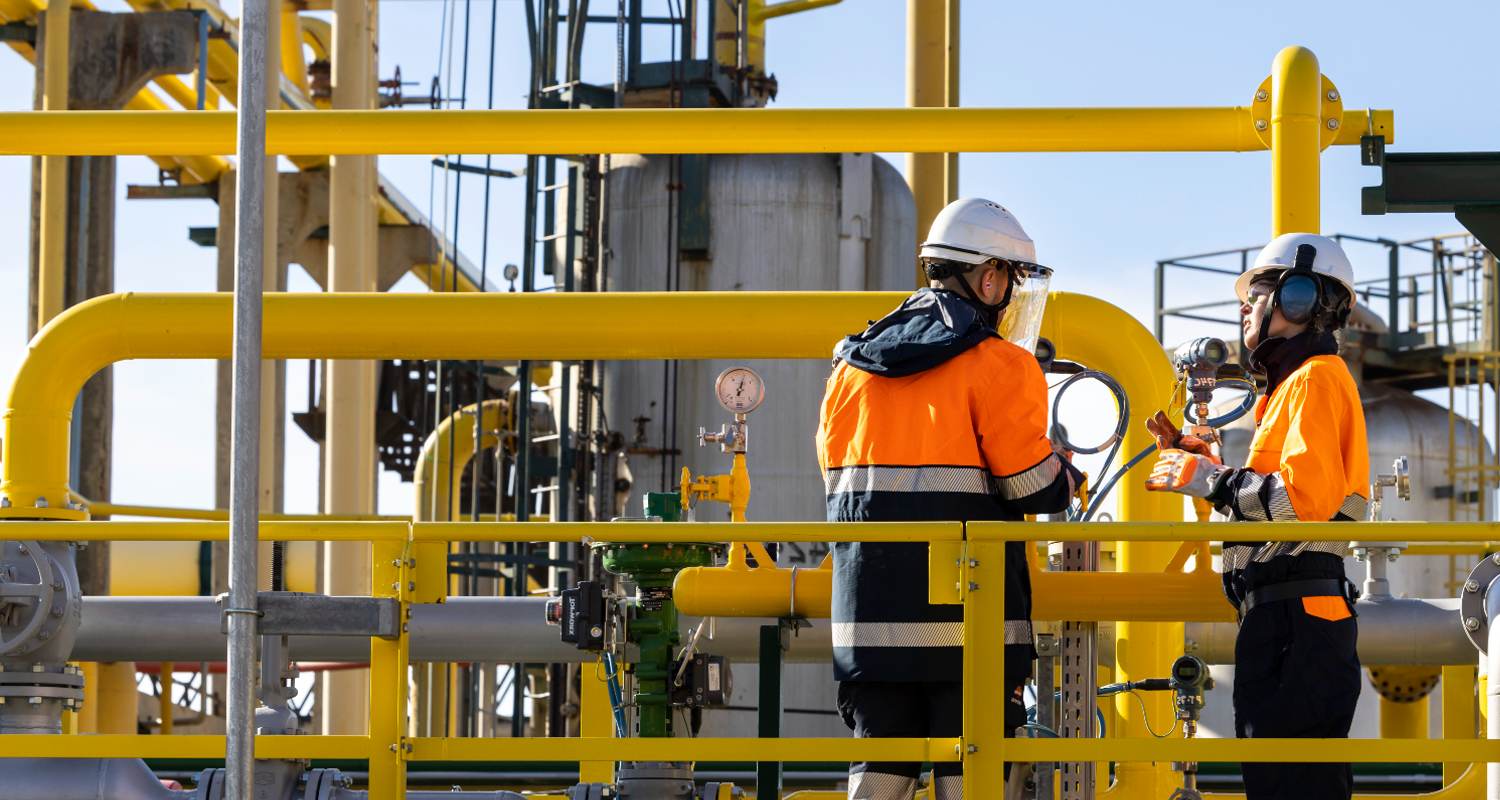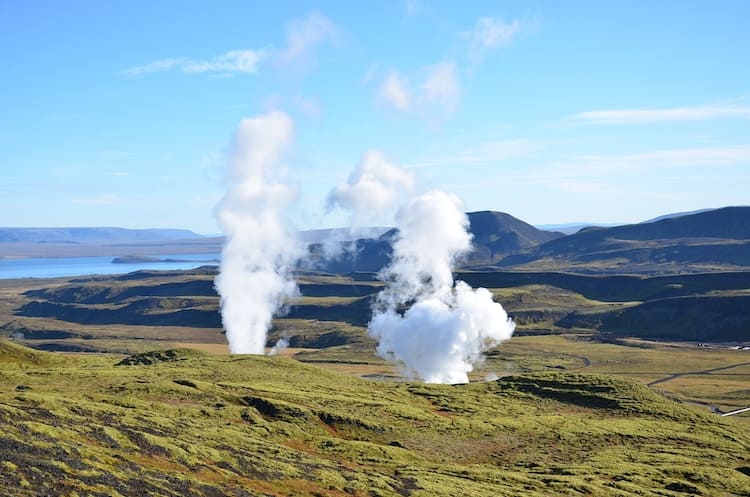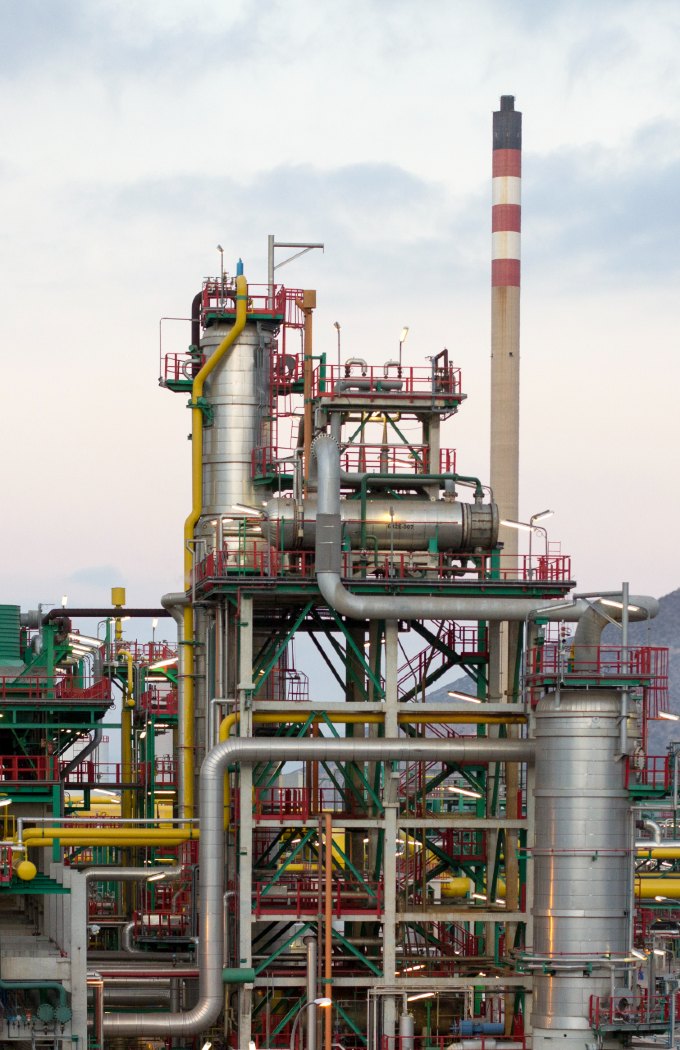
Renewable hydrogen
Renewable hydrogen
We are committed to this energy vector with net zero CO2 emissions for use in industry and as a raw material to produce renewable fuels.

Low carbon and circular economy
We explore new raw materials and technological routes that promote circularity
Renewable fuels produced from waste, circular materials, renewable hydrogen, or CO2 capture and use, as drivers to transform the industry and reduce the carbon footprint.
What do we focus on?
Industrial transformation
We are working to convert our seven industrial complexes into circular multi-energy hubs, modifying processes to produce materials and products with a low carbon footprint.
Circular economy
We convert waste raw materials into value-added products that we can use at our industrial complexes, such as biogas or biomethane.
Circular products
We focus on recyclable materials and recycled raw materials that result in more efficient and sustainable high-quality products.
The transformation of the industry, with a focus on the circular economy and carbon management technologies, is key to advancing on the path we have set for ourselves to become a net zero emissions company by 2050.

Technologies to transform the industry and take advantage of the resources

Renewable hydrogen
We are committed to this energy vector with net zero CO2 emissions for use in industry and as a raw material to produce renewable fuels.

CO2 capture, use, and storage
Technologies to capture and reduce CO2 from the atmosphere. They allow it to be transported and stored permanently and safely in the subsoil or to be used to produce synthetic fuels.

Water management
We work on solutions to reduce raw water abstraction by industry and recover water used in industrial processes to avoid spills.
We also focus on…

Circular materials
We design recyclable materials, which also incorporate part of the recycled product in their composition, and will be reused to give them a second life.

Waste technology
We analyze technologies to convert different types of waste, such as municipal solid waste, plastics, or biomass into advanced biofuels and circular materials.

Biotechnology
We use enzymes and microorganisms to develop new materials and processes applicable to the energy industry, such as chemical products or renewable fuels.

Industrial heat recovery
We use waste heat recovery techniques derived from the high temperatures reached in industrial processes to reuse them and thus reduce energy costs.

Geothermal
We investigate this renewable and inexhaustible energy, which is obtained by harnessing the heat of the Earth's interior, stored in rocks, soils, and groundwater.
Success stories



DAC.SI Project, a pioneering technology for direct air capture
On the journey of our commitment to reduce emissions, aligned with the Paris Agreement, Repsol Sinopec Brazil has invested in DACMa, a Hamburg-based startup that develops Direct Air Capture (DAC) technologies. The project will pursue the following goals:
Start the operation of a plant with a capacity to capture 300 tonnes of CO2/year.
Develop new adsorbent materials for CO2 direct air capture.
Analyze the effects of CO2 injection and mineralization in basaltic rocks, through R&D projects.
Seek marketing of DAC technology by 2030.


-lpr.jpg.transform/rp-rendition-sm/image.jpg)
CirQlar, overcoming technological barriers in heat recovery
Implemented at the A Coruña industrial complex, this project will recover low-temperature waste heat (100ºC) and raise it to 150ºC by means of a high-temperature heat pump, reducing greenhouse gas emissions by avoiding natural gas combustion. CIRQLAR will promote more efficient and competitive industrial production, reducing external energy dependence and CO2 emissions.
24,000 MWh/year of low-temperature heat recovered.
60,000 tCO2 reduced in the first 10 years of operation.
April 2025 is the planned start-up date.
Visit other areas of research that drive our businesses

Advanced mobility and renewables
We work on the development of technologies for low-carbon mobility, household energy management, energy efficiency, and renewables.

Technologies for asset optimization
Artificial intelligence, IoT, machine learning, or robotics are the tools that allow us to accelerate the transformation of our plants and industrial processes.